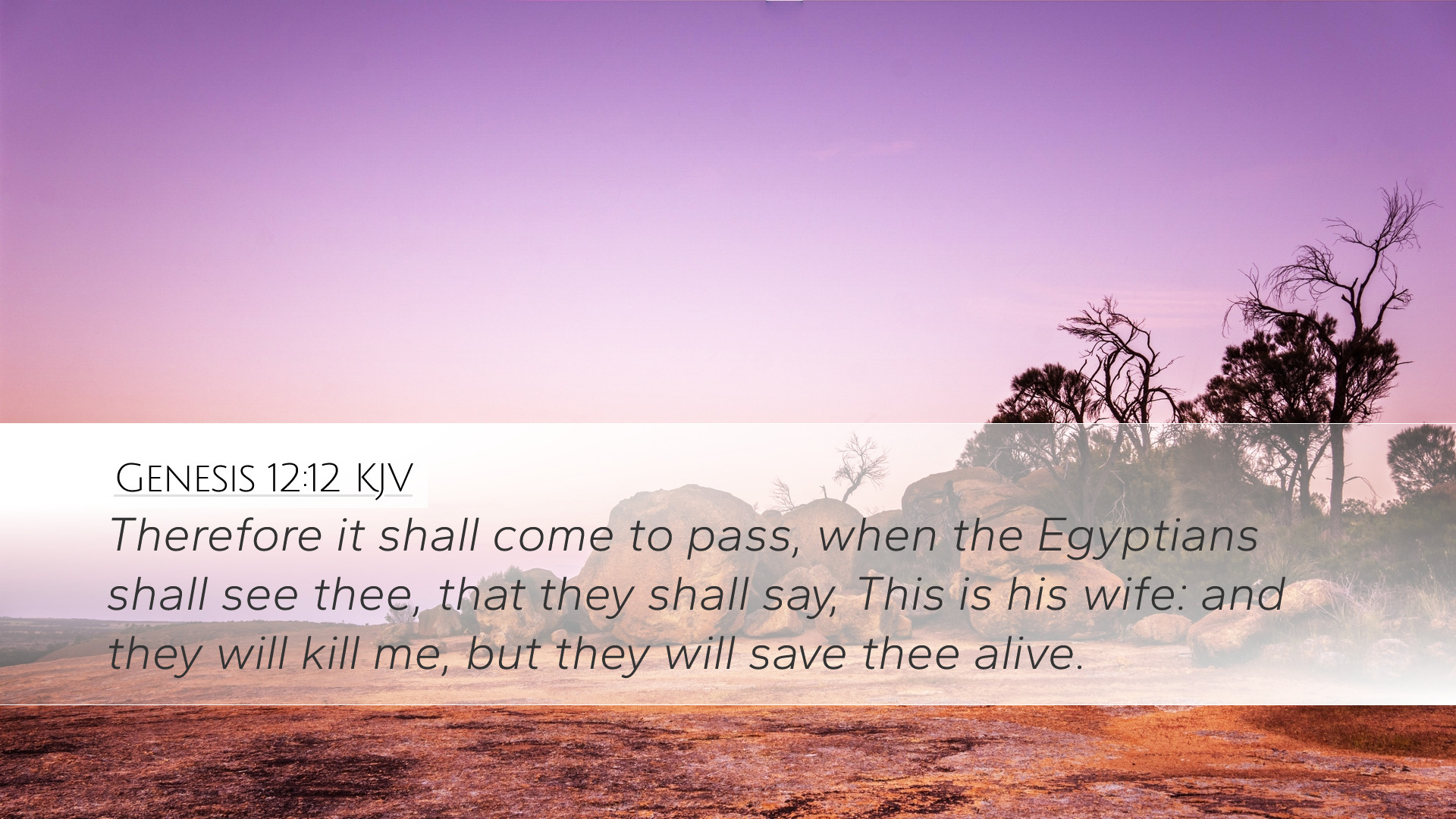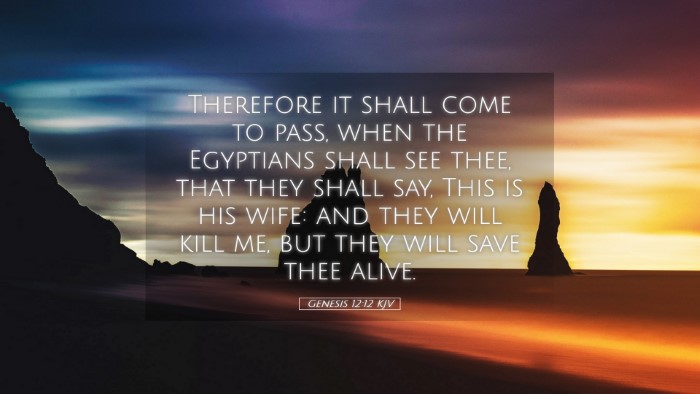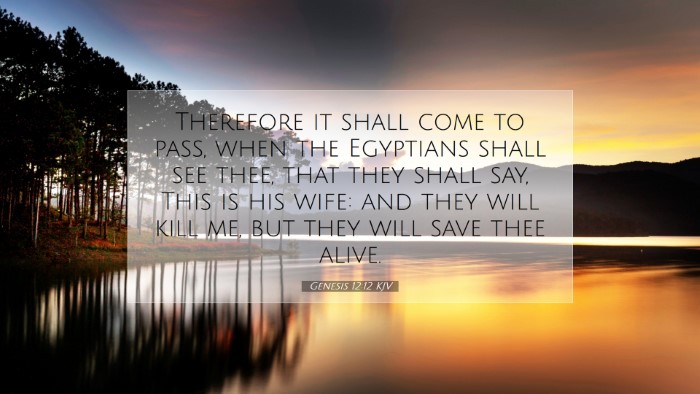Commentary on Genesis 12:12
Genesis 12:12 states:
"And it will come to pass, when the Egyptians shall see thee, that they shall say, This is his wife: and they will kill me, but they will save thee alive."
This verse is part of the narrative concerning Abraham's journey to Egypt during a time of famine. It reflects Abraham’s concern for his safety as he enters a foreign land. Below, we combine insights from public domain commentaries to provide a comprehensive view of this verse.
Context and Setting
The backdrop of this verse is significant: the famine in Canaan forces Abraham (then called Abram) to seek refuge in Egypt. Matthew Henry remarks on the geographical and cultural shift Abraham is making, moving from a land of promise to a land characterized by idolatry and foreign power.
The first significant insight here is the contrast between Abram's faith and his fear. Henry notes that this journey signifies a moment of testing for Abram, calling into question the trust he places in God's promises. The move to Egypt, a place of potential danger, illustrates the moral dilemmas faced by believers when in desperate situations.
Understanding Abram's Fear
Abram’s fear is two-fold: he fears for his life and is concerned about Sarai (later named Sarah), his wife. Albert Barnes interprets this as a natural human instinct to protect oneself and one's loved ones. Abram speculates that the Egyptians, noticing Sarai's beauty, would resort to killing him to possess her.
This situation raises important ethical questions about faith and survival. Adam Clarke highlights that while Abram’s concerns are understandable, they also demonstrate a lapse in faith. Instead of trusting God for protection, Abram resorts to deception as a means of self-preservation.
The Deceptive Proposal
Abram suggests to Sarai that he would lie about their relationship, claiming she is his sister. This deception is significant: it reveals Abram's strategic thinking but also his lack of trust in God's provision. Henry indicates that such a lie, though partially true (as Sarai was his half-sister), reflects a moral compromise.
The implications of this statement are profound. Deception, even if seemingly justified for self-preservation, opens a Pandora's box of consequences. Barnes comments that this choice sets off a chain reaction that endangers both Abram and Sarai, highlighting the unpredictable nature of dishonesty.
Reflections on Safety and Trust
Interestingly, this narrative provides a platform for reflection on the nature of faith amidst fear. It encourages pastors and scholars to consider how often God asks His followers to remain steadfast, even when the circumstances are dire. Clarke notes the absolute need for total reliance on God’s ability to protect and provide.
This situation can be likened to the experiences of many believers who face threats from the world around them. Henry describes how Abram's actions serve as a lesson about the importance of trusting divine protection rather than relying on one's cunning or deceit.
Theological Implications
The theological implications of this verse are vast. It raises issues regarding the sovereignty of God amidst human failings. Barnes points out that God’s overarching plan remains intact despite Abram's decision to deceive. This serves to remind believers that God's promises do not depend on our perfect adherence to Him.
This narrative also prefigures the broader biblical theme of redemption and the grace that God extends to His people, even when they act contrary to His will. Clarke emphasizes that God's faithfulness is not undermined by human shortcomings, which provides profound assurance for the faithful.
Conclusion
In Genesis 12:12, we encounter a moment of profound conflict between fear and faith, deception and trust. The combined insights from Matthew Henry, Albert Barnes, and Adam Clarke illuminate the complexities of Abram's character and the socio-cultural pressures he faced. For pastors and theologians, this narrative offers a rich tapestry for preaching and teaching on the nature of faith amidst peril, the pitfalls of human reasoning, and the unwavering faithfulness of God.
As we reflect on this text, we are reminded to consider how our responses to fear shape our understanding of God's promises. May we, like Abram, find grace in our journeys and learn to place our utmost trust in the One who calls us.


